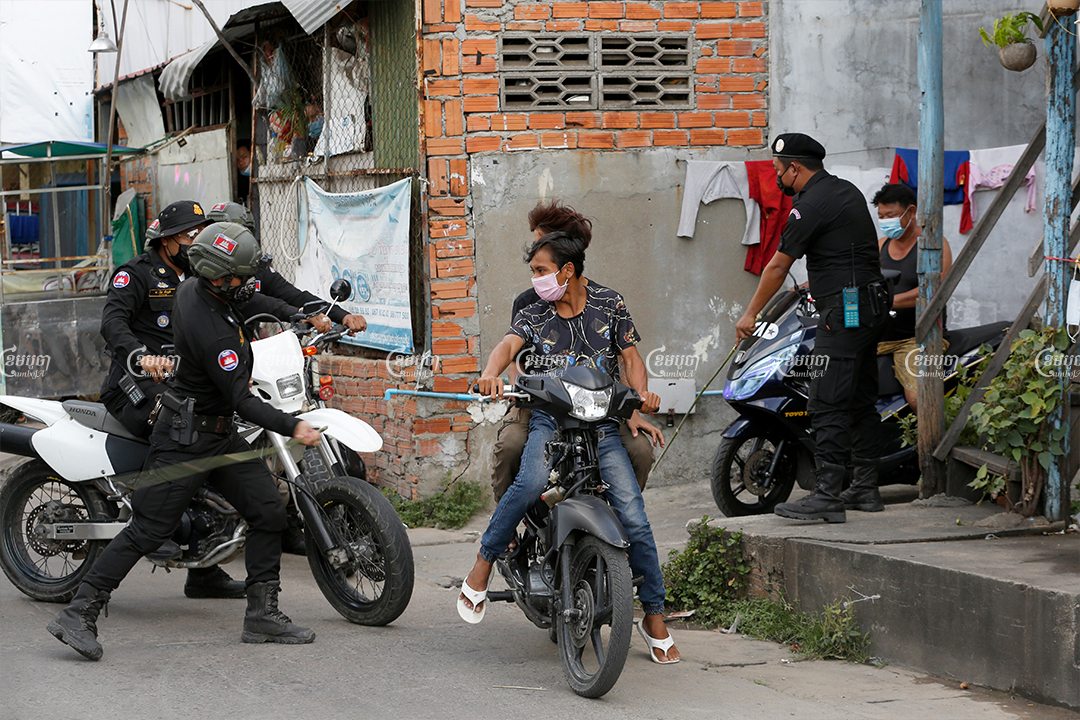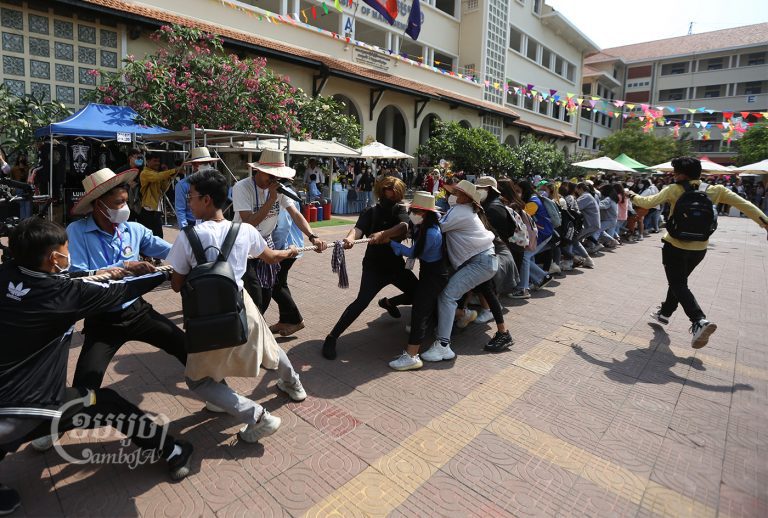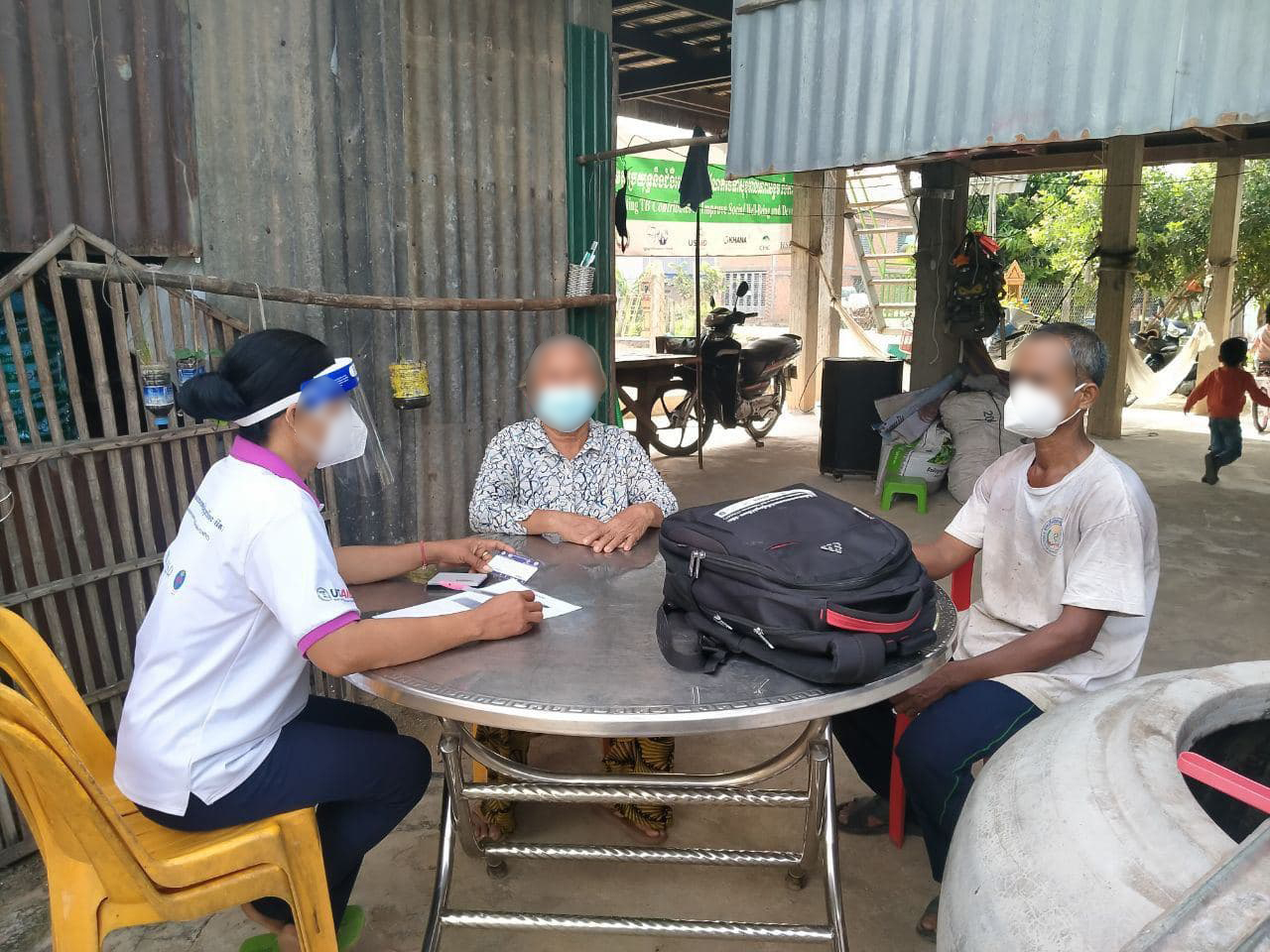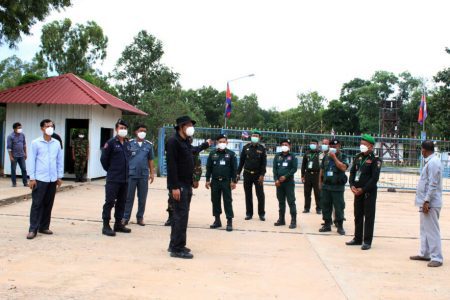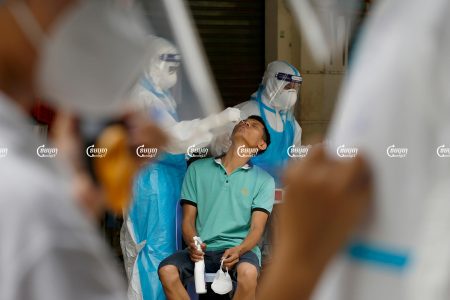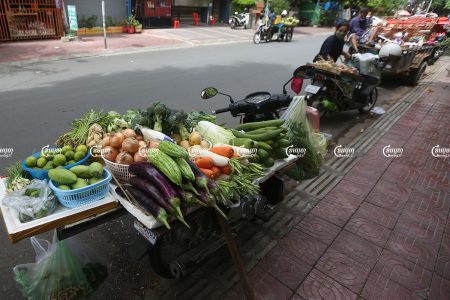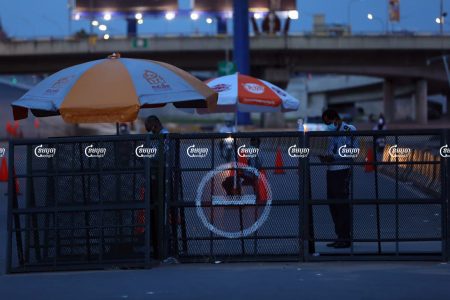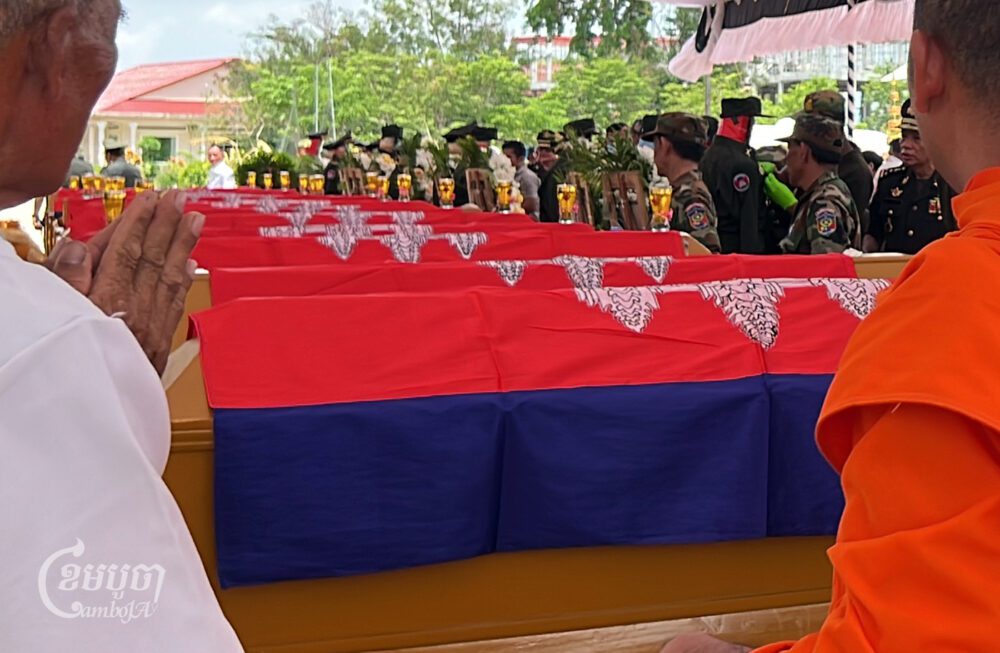In a measure that human rights monitors have blasted as extreme, Phnom Penh police have begun flogging people deemed to be violating the sweeping metropolitan lockdown order.
Video clips circulating on social media Tuesday showed police and district security guards using bamboo sticks to hit people who left their houses to walk on the streets. The most stringent enforcement occurred in the areas designated Monday as “red zones”, including parts of Meanchey district in the city’s southwest where local media caught footage of heavily armed security officers patrolling the streets. But police outside these especially locked zones have also been recorded beating pedestrians with sticks, drawing accusations of human rights violations and further blurring the public understanding of what conduct is permissible during the lockdown.
Phnom Penh Municipal Police Chief Sar Thet denied that police had actually beaten people, though he could not explain the actions seen in videos of such incidents that had circulated online. Still, he confirmed that police have started to force people to lock down in their homes, even beyond the red zones.
“They have not beaten them up, [police] just pretended to whip them,” Thet said, adding that police have already instructed the public to stay at home, but that people aren’t listening and continue to violate orders.
Other photos on social media showed police distributing long sticks to officers around town. Though Thet insisted police are for now only pretending to whip people, he said officers are also ramping up their enforcement.
Phnom Penh and neighboring Takmhao City in Kandal province have been under lockdown since April 15, with increasingly strict measures implemented over the past weekend. Residents are now mostly banned from going to work or exercising outside, and are allowed out for food shopping only on a limited basis. On Monday, Phnom Penh City Hall designated seven areas with an elevated number of COVID-19 cases as red zones subject to enhanced lockdown measures.
For now, those zones include the Meanchey district communes of Stung Meanchey 1, 2 and 3; the Pur Senchey district commune of Choam Chao I; and, in Toul Kork district’s Boeng Salang commune, the villages numbered 14, 16 and 17.
In the red zones, all shops are shut and most residents can’t leave their homes except for medical emergencies. The state has made itself responsible for providing food to residents within the zones, though the first deliveries of aid took days to reach people stuck in their homes with no other access to supplies. Meanwhile, social media pages and Telegram groups have been flooded with accounts of desperation from capital residents struggling to feed themselves and their families as their money runs out and stores are forced to close.
Am Sam Ath, deputy director at rights group Licadho, said the authorities have taken extreme measures to implement the lockdown. While he noted that the public had already accepted the need for restrictions to stop the spread of COVID-19, Sam Ath said police must be reasonable in their enforcement tactics.
“We can’t accept when authorities have quickly turned to the use of violence related to those measures,” he said. “Authorities should find other means to prevent people from leaving home or walking on the streets.”
He said it was ridiculous that Cambodian authorities had apparently adopted the stick method as seen in India, where authorities are struggling to contain a massive spike in COVID-19 infections and policemen have been recorded flogging people walking on the streets.
“The public have already been challenged by a new law on COVID-19, and they are now suffering with violence,” Sam Ath said, pointing to the use of roadblocks as an appropriate, non-violent tactic to curb public contacts. “It isn’t a good image while our country upholds democracy and respecting human rights.”
Soeng Senkarun, a senior investigator at rights group ADHOC, also disagreed with the use of violence to force people into lockdown.
“We do not support the use of violence and we have not seen any orders which have laid out these measures by the government,” he said, urging a non-violent response making use of existing court methods. “Authorities should warn [those who break lockdown] and have them sign a contract letter. If they continue their behavior, we should implement the law.”
Senkaruna said there are many peaceful means to follow up with more education or reinforcement, rather than flogging those who stray from their homes. He added a reminder that the Cambodian public has already been suffering from the COVID-19 crisis before this escalation on the streets.
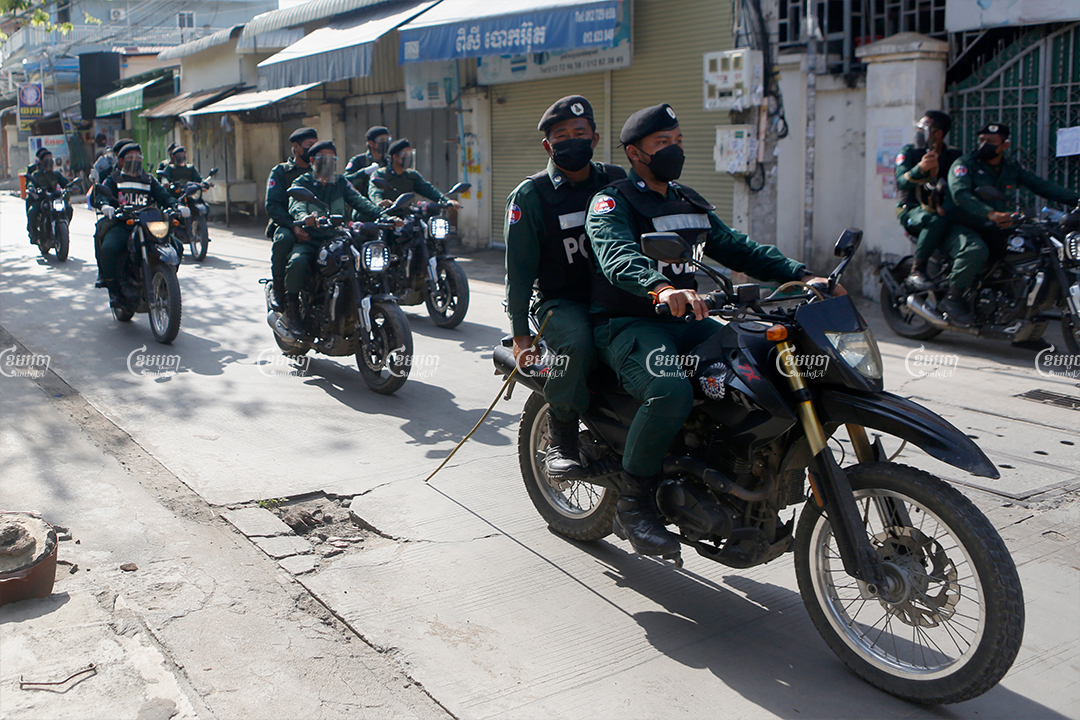
Meanwhile, authorities stand by their methods and reject civil society.
Justice Ministry spokesman Chin Malin said the rights groups have only a theoretical grievance, and claimed they did not understand the reality of the situation faced by law enforcement in preventing the spread of COVID-19, especially in areas designated as red zones.
“We don’t have other means while [people] still aren’t listening, so using force might be necessary and is the last measure that police are using,” Malin said.
Met Measpheakdey, Phnom Penh city hall spokesman, could not be reached for comment.
On Wednesday, the Ministry of Health recorded 303 new cases of COVID-19, raising the total number of diagnoses after the February 20 outbreak to 7,202. Since the start of the current outbreak, 54 people have died from the viral disease. Since the pandemic began in early 2020, Cambodia has recorded a total of 7,747 cases of COVID-19.
Police Chief Thet pointed to the rapid growth of the outbreak as he rejected civil society groups to the lockdown enforcement methods now being used in the capital. At the same time, he denied again that officers have used any violent tactics to maintain the order.
“There have been no human rights violations. Those people [NGOs] have just raised their opinions, but our police forces are working to prevent the spread of the virus,” he said. “Please don’t think about just one corner of [human rights], the important thing is people’s lives.”
But if police are just pretending to beat pedestrians, that distinction is lost on those now glued to their internet devices to pass the time during lockdown.
A 30-year-old delivery worker, Tin Nak, told CamboJA he was disappointed to see the videos of police whipping people. Nak lives in the red zone of Stung Meanchey III commune, where authorities have prohibited people from leaving their homes at all.
“I don’t understand this law enforcement by the police. For me, I think it is violent,” he said. “They should instruct and educate them more about staying at home.”


